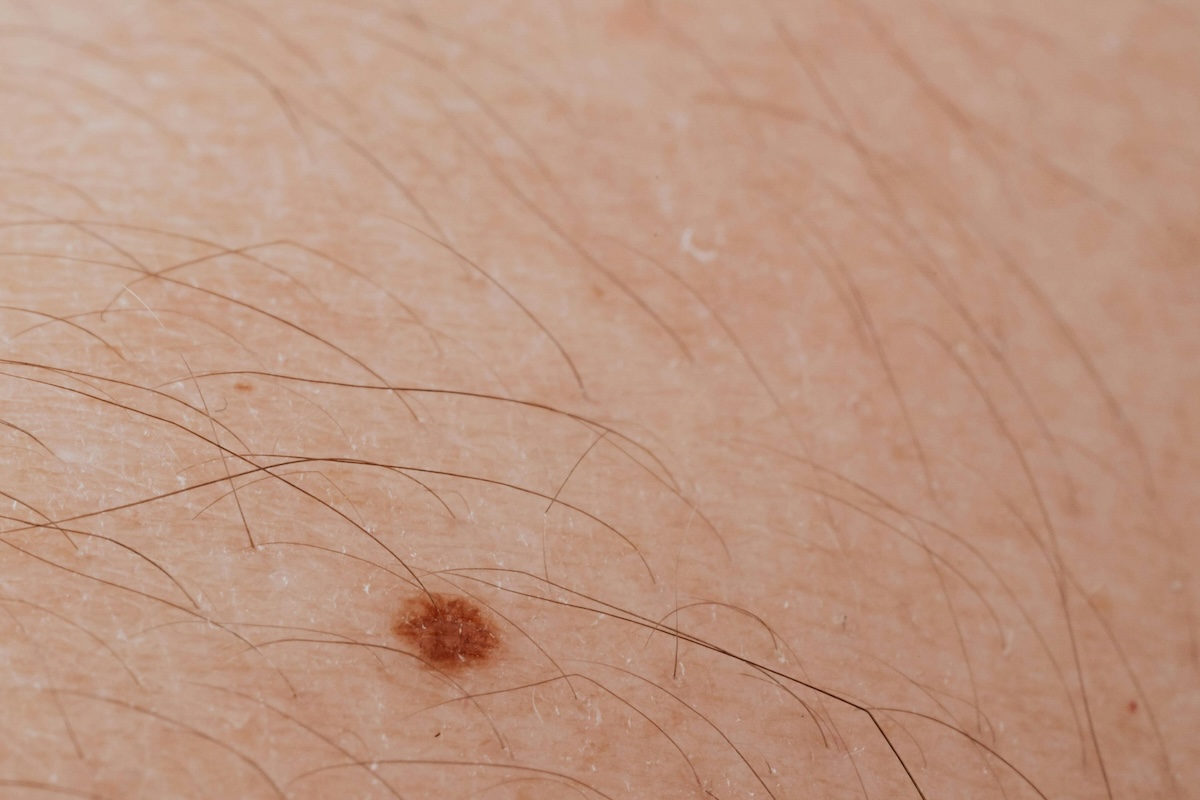Just the other day I saw a new patient, a college-aged woman who came to the appointment with her mother. She had been to a number of doctors who had all told her that perhaps she had polycystic ovary syndrome (PCOS). No one would give her a definitive diagnosis. Each doctor had offered a different plan. She was confused and frustrated.
This encounter is not an unusual one. Many women tell me that they are confused because some doctors have told them they have PCOS and some disagreed. This discrepancy of opinions among doctors gets at the core of what PCOS is and is not and prevents many women from getting effective treatment for their symptoms.

I am going to share with you what I share with my patients when they come in asking about PCOS.
What is PCOS?
PCOS is a syndrome, not a disease. A syndrome is just a group of symptoms that commonly occur together for which we may or may not understand the cause. We don’t fully understand what causes PCOS.
We think that the communication between the hypothalamus, pituitary, and ovaries that usually leads to ovulation is abnormal and that this abnormal signaling causes increased production of male hormones often called androgens. For many women, there is a relationship between androgens and insulin. For those women, insulin resistance is a key symptom that can lead to weight gain, prediabetes, and diabetes.
The triggers of PCOS are complex and likely include both genetic and environmental factors.
How can PCOS be diagnosed?
In 2018 an international group of experts convened to standardize diagnostic criteria. There is no single test that says you have PCOS or you do not have PCOS. Rather, we base the diagnosis on the following symptoms:
- Irregular or absent periods
- Signs of high male hormones such as acne, body-hair growth or scalp-hair loss, or blood tests that demonstrate high androgen levels
- The presence of many small cysts in the ovaries
A woman need only have two of the three criteria above, and ovarian cysts do not need to be present.
Because there is no test that definitively diagnoses PCOS, it is a diagnosis of exclusion. This means we should look for a few other medical problems that can look a lot like PCOS.
PCOS is also a spectrum disorder — some women will experience all possible symptoms in their most severe form and some women will have only a few mild symptoms. Some women will develop severe insulin resistance, prediabetes, and even Type 2 diabetes early in life, and some women with PCOS will never show signs of insulin resistance. Additionally, a woman’s symptoms may wax and wane throughout her reproductive life. This means that women with PCOS will not all look and present the same. This is one reason why getting diagnosed with PCOS can be so tricky.
Add to that, over the years there has been disagreement about the criteria for diagnosing PCOS. Furthermore, obstetrics and gynecology residents receive minimal training regarding PCOS, and it can be hard for patients to see endocrinologists — who receive more training regarding PCOS. There are only 9,000 practicing endocrinologists and 168 million women in the U.S. This is the perfect storm for confusion.
I often share a radical idea with my patients. It doesn’t really matter whether we diagnose you with PCOS or not. Because we don’t know what causes PCOS, we treat symptoms. If we confirm that your symptoms are not from other causes, we can treat your symptoms whether we name them PCOS or not.
What are the goals in treating PCOS?
There are a few important goals of treatment for PCOS. The first is that the irregular periods so many women with PCOS experience are associated with an increased risk of developing cancer of the uterine lining — called endometrial cancer — particularly in women who routinely have fewer than four periods per year. Researchers believe this is because without regular shedding, the cells of the uterine lining will grow and potentially mutate into precancerous and then cancerous cells.
The second goal is to reduce the risk for metabolic disease such as diabetes and high cholesterol. This is particularly important for those women showing signs of metabolic disease, in the form of prediabetes or high cholesterol, in their 20s and 30s.
The third goal is to improve the symptoms that are bothering women with PCOS. This can include body-hair growth, scalp-hair loss, acne, and weight gain. If a patient has those symptoms but they are not bothered by them, treating those symptoms is unnecessary. But usually, it is these symptoms that bring patients into my office because they are very bothered by them.
What treatments are effective for PCOS?
To achieve these treatment goals, doctors typically lean on three medications: birth control pills, metformin, and spironolactone. Each one works to reduce risk and improve symptoms differently, and an individual woman might take one, two, or all three medications to adequately manage symptoms.
Birth control pills are often the first treatment women are offered when they are diagnosed with PCOS. For women with fewer than four periods per year, birth control pills suppress the overgrowth of uterine lining and trigger regular uterine bleeding. Likely as a result of this, birth control pills are associated with a decreased risk of endometrial cancer. Birth control pills also decrease androgen levels in women with PCOS. As a result, they can decrease scalp-hair loss, body-hair growth, and acne.
Metformin is a medication that was originally developed to treat Type 2 diabetes. In women with PCOS, metformin has been shown to improve insulin sensitivity. This in turn seems to increase how frequently women ovulate. When women ovulate more frequently, they have more regular periods. Metformin can indirectly lower androgen levels, decreasing scalp-hair loss, body-hair growth, and acne. Metformin reduces the risk of metabolic disease, and, in women who already have prediabetes, metformin reduces the risk of progressing from prediabetes to diabetes.
Spironolactone is a third treatment option for PCOS that aids in reducing symptoms. Like metformin, spironolactone was developed to treat something else — it can reduce blood pressure and water retention. However, it also blocks the androgen receptors present in the skin and hair follicles. As a result, it is especially effective at treating acne and at higher doses can prevent body-hair growth. Spironolactone does not affect period regularity or decrease the risk for endometrial cancer or metabolic disease. As a result, it is typically used in conjunction with birth control pills and/or metformin.
Do medicines like Ozempic treat PCOS?
Increasingly, women are interested in understanding whether a medication like semaglutide (Ozempic/Wegovy) or tirzepatide (Mounjaro/Zepbound) might be useful in managing PCOS. It is a reasonable question to ask. We know these medications improve insulin sensitivity and help with weight loss. And we know when women with PCOS have improved insulin sensitivity and when they lose weight, they have more regular periods and decreased androgen levels.
In a meta-analysis, GLP-1 agonists were associated with improved insulin sensitivity and weight loss compared with metformin in women with PCOS. The authors note the quality of the data available is low, and more studies are needed to fully understand the benefits of GLP-1 agonists for women with PCOS specifically. However, in women with PCOS, metabolic disease, and overweight or obesity, I do consider GLP-1s an option.
How does PCOS affect fertility?
PCOS is a common cause of infertility. However, because PCOS is a spectrum disorder, it is difficult to know if an individual woman with PCOS will struggle with infertility and to what degree. The main cause of infertility among women with PCOS is infrequent or absent ovulation. If you don’t know when you are ovulating or you are not ovulating regularly, it can be difficult to know how to time intercourse to try to conceive. Additionally, ovulating infrequently just leads to fewer opportunities to conceive over a given period of time.
Mouse models of PCOS suggest that egg quality may be decreased in PCOS as well. While we need more data in humans, if egg quality is lower in women with PCOS that might mean that even when a woman does ovulate that egg is less likely to result in a viable pregnancy.
As an endocrinologist, I refer my patients to a reproductive endocrinologist if they are having trouble conceiving. I will refer my patients with PCOS sooner particularly if they are having very infrequent periods. Reproductive endocrinologists have a number of tools at their disposal, including ovulation induction, intrauterine insemination, and in vitro fertilization, all of which can be effective in achieving a healthy pregnancy in women with PCOS.
The bottom line
- PCOS affects about 10% of women in their reproductive years, but shifting symptoms, lack of a simple diagnostic test, and minimal focus on PCOS during physician training all contribute to confusion and delays in diagnosis.
- The goals of treating PCOS include reducing the risk of endometrial cancer, reducing the risk of developing metabolic diseases such as Type 2 diabetes, and treating symptoms such as acne, body-hair growth, and scalp-hair loss.
- Treatment options for managing PCOS include birth control pills, metformin, spironolactone, and, increasingly, GLP-1 agonists.
- While PCOS is a common cause of infertility, it can be difficult to predict whether or not an individual woman with PCOS will struggle with infertility or not until she tries to become pregnant.





















Log in